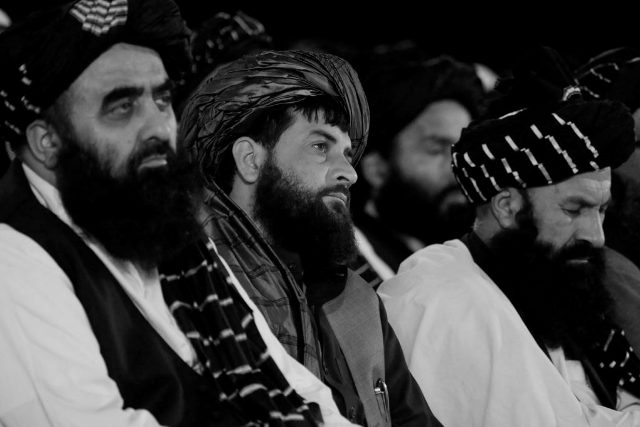Kabul:
Afghanistan’s economy remains stagnant and its population is facing a worsening humanitarian crisis, with a third of the country’s 40 million people living on bread and tea. The World Bank warns of zero growth over the next three years. However, there have been some positive changes since the Taliban takeover in 2021, such as resilient currency, reduced corruption, and improved tax collection. Authorities have also built economic, commercial, transit, and investment ties in the region.
Afghanistan has great mineral and agricultural potential, which the Taliban government is attempting to exploit, but they are impeded by poor infrastructure and a lack of domestic and foreign expertise and capital. Many Afghans welcome the improved security in their lives, but many are just trying to make ends meet.
Business is booming for 54-year-old Azizullah Rehmati, who has his saffron company set to double production this year. The improved security climate has eliminated the need for overt protection, and women sort the red stigmas of the precious saffron spice with tongs. However, a key challenge for Rehmati and Afghanistan as a whole is the crippled banking sector. International sanctions and freezing of central bank assets have blocked the sector, and Afghan passports are rated the worst in the world by the Henley Index.
Wahid Nekzai Logari, a musician, played in Afghanistan’s national orchestra and performed concerts on the sarinda and harmonium. However, the Taliban government has prohibited public performances of music, deeming it un-Islamic, leaving thousands involved destitute. Logari is now unemployed, and he sometimes drives a cab to feed his family of seven.
Abdul Wali Shaheen, an insurgent-turned-bureaucrat, wanted to “die a martyr’s death” in the Taliban ranks but switched his rocket launcher for a computer at the Department of Information and Culture in Ghazni province. He is happy with the direction the country is going and has hope for the future.
Sayeda, a hidden beautician, reopened in secret four months ago in Kabul after the order to close beauty salons last year. She has kept her 25 employees so that everyone has an income, but her salary has dropped from 25,000 afghanis per month to between 8,000 and 12,000 afghanis.

